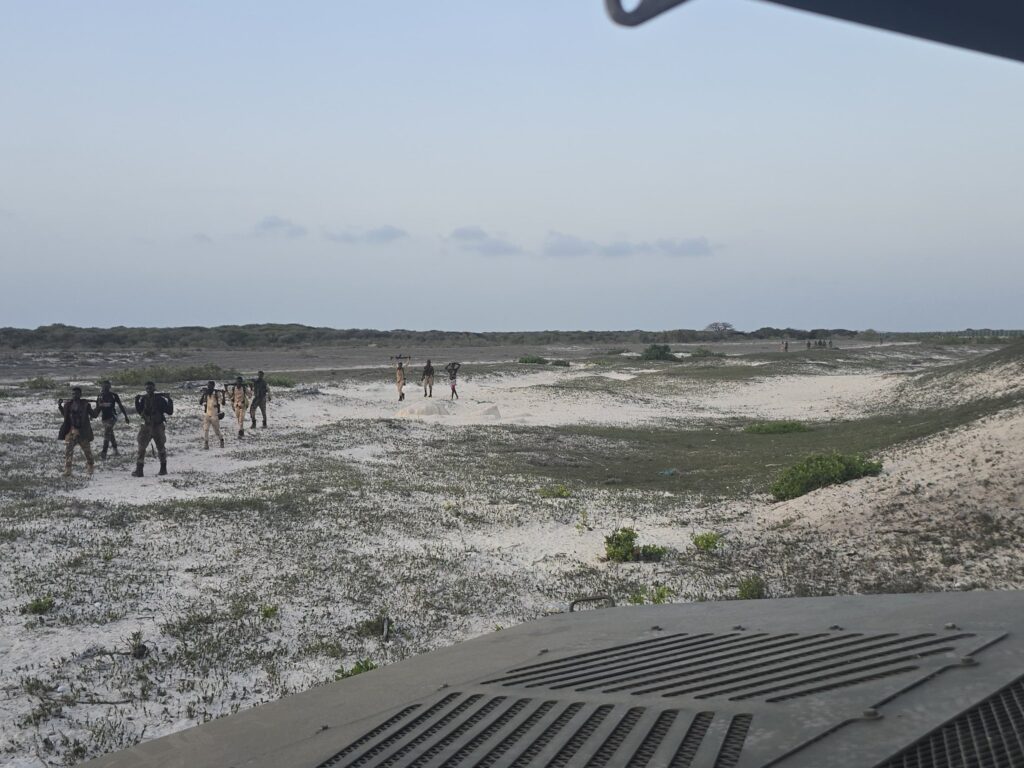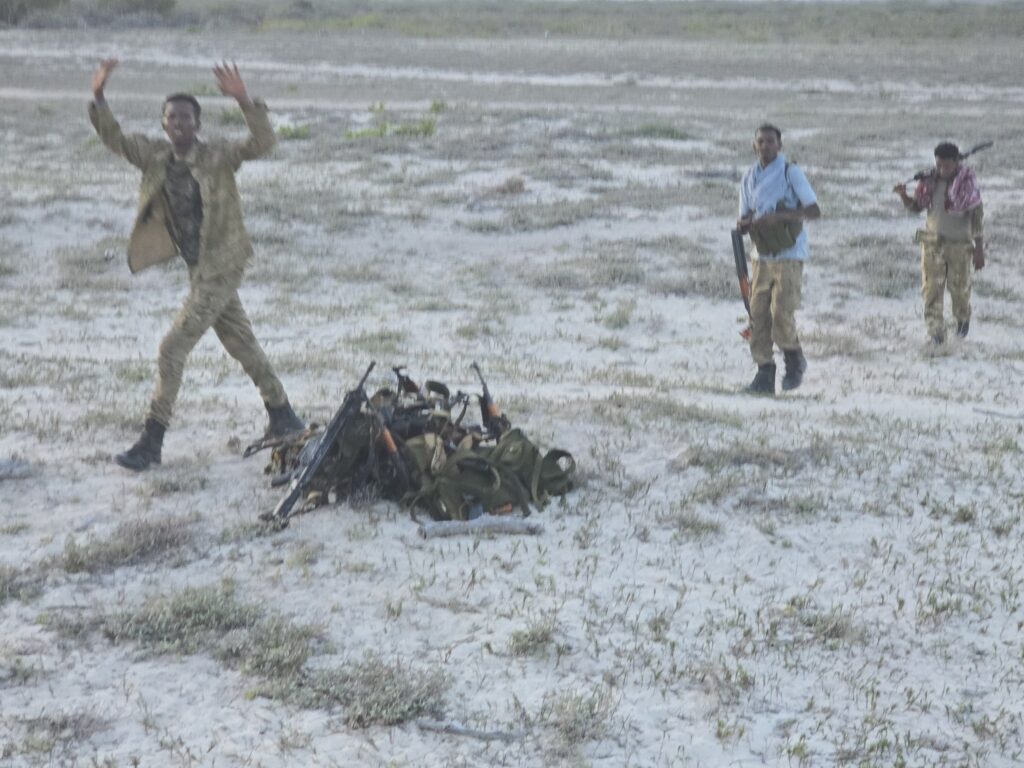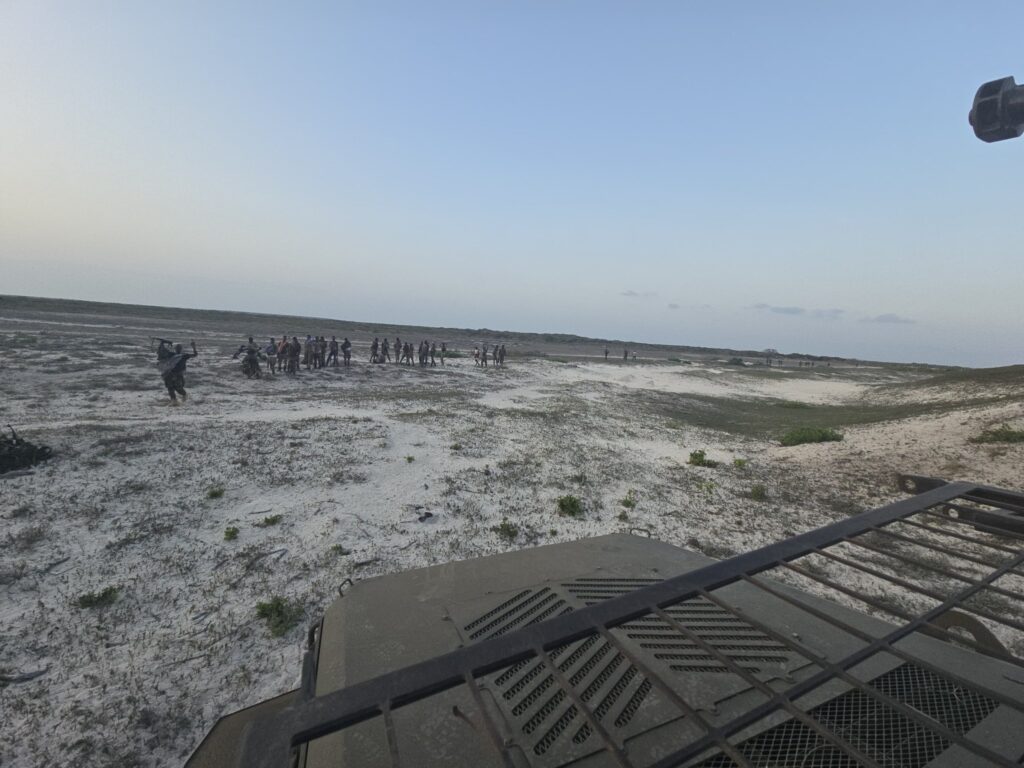Kismayo/Nairobi, (Idil News) – Jubaland forces have taken full control of Ras Kamboni a key strategic town near the Kenya-Somalia border, along with its adjacent airstrip, following an intense battle with Somali Federal Government troops.



Around 300 soldiers loyal to the Federal Government surrendered to Jubaland forces after being disarmed upon crossing into Jubaland territory. Trusted sources indicate that the Federal troops, led by a commander identified as “Iraqi,” crossed the Kenya-Somalia border before encountering a swift response from Jubaland forces.
“The soldiers laid down their arms and surrendered peacefully,” a senior Jubaland official told Idil News. “This marks a decisive victory for Jubaland forces in consolidating control over the region.”
The incident has also drawn attention across the border. Kenyan authorities confirmed that disarmed Somali troops sought refuge at the Ishakani border point. Kenya’s Counterterrorism Police Department posted on social media platform X (formerly Twitter), citing the defeat of Somali National Army (SNA) troops aligned with Somali President Hassan Sheikh Mohamud and Prime Minister Hamza Abdi Barre and then deleted.
The Somali Federal Government based in Mogadishu has yet to comment on the developments including the loss of Ras Kamboni, the surrender of its troops and the crossing of forces into Kenyan territory.
The confrontation has been ongoing dispute between Somalia’s leader Hassan Sheikh and Jubaland President Ahmed Madobe has been at odds with the administration in Mogadishu.
Ras Kamboni is located along the Indian Ocean coastline and strategically significant due to its proximity to Kenya and its potential security. The town’s control is expected to bolster Jubaland’s influence in the area and there’s a buffer zone threat from Al-Shabaab.
Constitutional Crisis Deepens
The clashes in Ras Kamboni come against a backdrop of heightened tensions following the re-election of Jubaland President Ahmed Madobe for a third term by the Jubaland legislative. The federal government strongly opposed his re-election and deployed troops to Ras Kamboni town of Badhadhe district of Lower Juba region.
In addition to the political turmoil, a court in Mogadishu issued an arrest warrant for Jubaland President Ahmed Madobe, accusing him of treason and leaking classified information to a foreign country. Jubaland State responded with its own arrest warrant against Somali President Hassan Sheikh Mohamud, accusing him of treason, inciting civil war, sympathizing with terrorist groups, and disrupting constitutional order.
These developments have exacerbated a constitutional crisis triggered earlier this year when President Hassan Sheikh overturned Somalia’s constitution on April 30, 2024. The amendment edits were strongly opposed by Puntland President Said Abdullahi Deni, and Puntlane Council Ministers overwhelming supported the decision to withdraw recognition of the federal government.
On late November, Jubaland soon thereafter cut ties with federal institutions.
International community
Ambassador Richard Riley of Somalia warned Somali federal government and Jubaland against escalating their political tensions into armed conflict.
He stressed that armed confrontation “would not benefit anyone except Al-Shabaab and urged of pursuing a peaceful resolution.
“This cannot be a repeat of 2013 or 2019. You must not go to armed conflict,” ambassador Riley loudly said while speaking at a townhall event organized by Minbar in Mogadishu on Tuesday.
This latest setback comes as Somali Forces faces ongoing insurgency and threats from Al-Shabaab and growing tensions between regional administrations and the central government.
Reported by Jibril Qoobey. Edited by 𝕯𝖗. 𝐗𝐈𝐃𝐃𝐈𝐆.
Discover more from Idil News
Subscribe to get the latest posts sent to your email.






